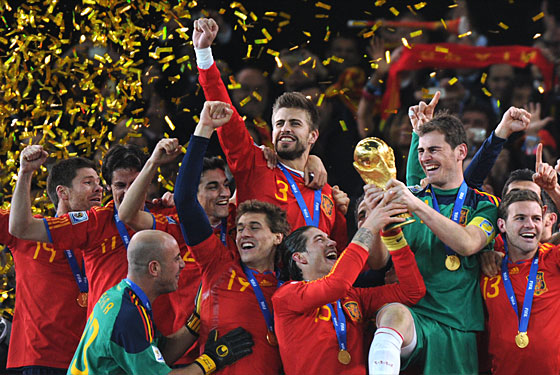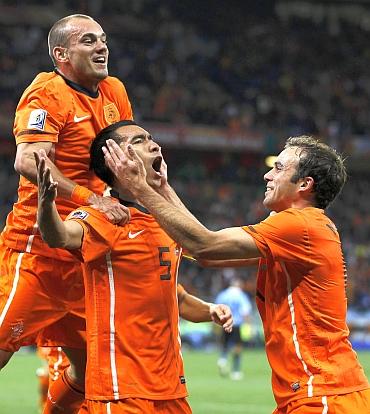
The man they call “Shrek” could easily have been mistaken for an impassive tourist on the West Sands such was the humble level of ostentation radiated by the South African on Sunday evening. Louis Oosthuizen’s Open victory at St Andrews represents more than a tournament condemned by certain quarters of the media as “boring”, and it would be foolish to underestimate the feat of Oosthuizen’s achievements. The South African’s performance over the four days were characterised by his infallible composure, in direct paradox to the wild gales that battered the Fife coast. Had it been Tiger Woods in Oosthuizen’s shoes, the entire planet would be genuflecting reborn beguilement for the World Number 1. Woods’ delusion was evident in the aftermath of the Open, as he mewed: “I played well, but I didn’t make any putts”, as if to insinuate that putting doesn’t constitute any part of ‘playing well’.
While it is difficult to condone that Woods’ has been very much the architect of his own downfall, his fall from grace is not unprecedented. The lesson of St Andrews, it seems, is the lesson of Pebble Beach, Bethpage, Hazeltine and Turnberry, four recent majors that produced unexpected winners. Professional golf is a more democratic arena these days - anyone can win – and that makes it all the more endearing.
The sport is struggling in traditional heartlands, such as the UK and the US, where golf club membership is down significantly, but in Asia its popularity is growing. China, South Korea, and Thailand are countries to which the European Tour, and increasingly so, the PGA Tour are looking to in the search for sponsorship.
Professional golf is therefore encompassed by a period of flux and uncertainty, headed by a roll call of major winners that caught everyone by surprise.
This is the post-Tiger Woods era, and I welcome it.


